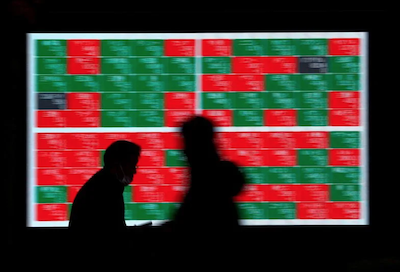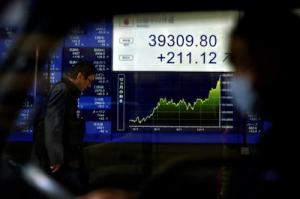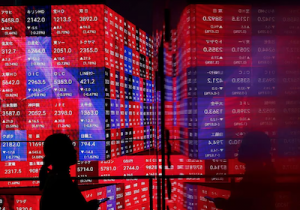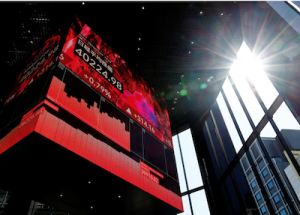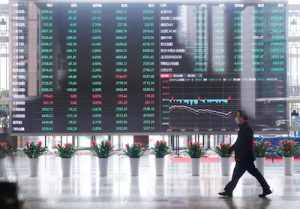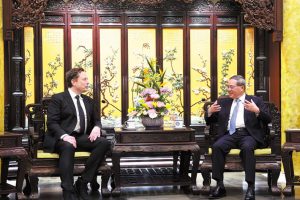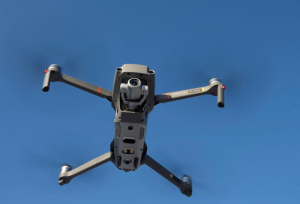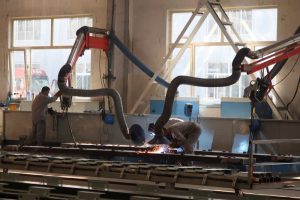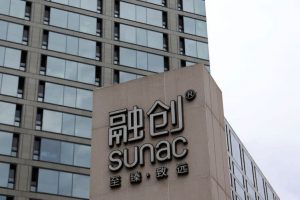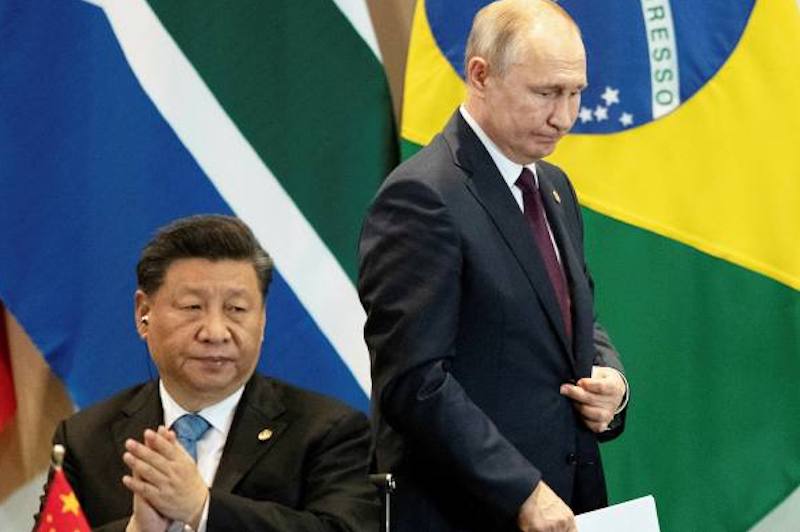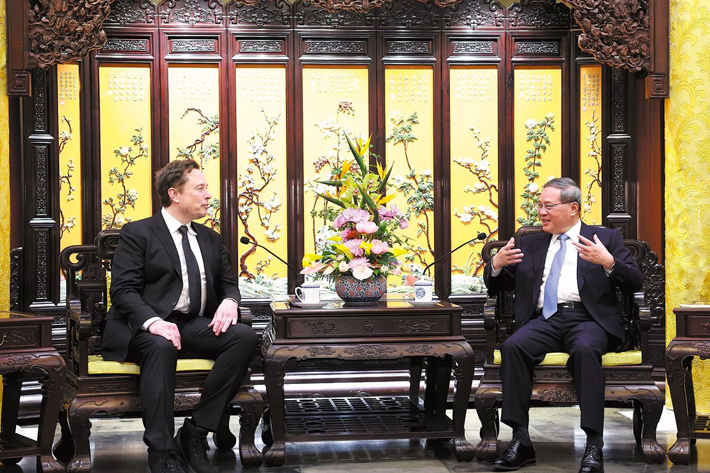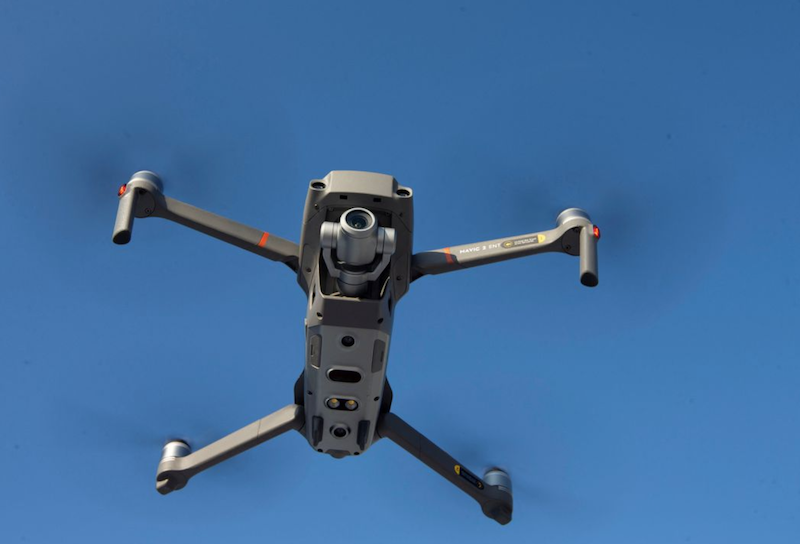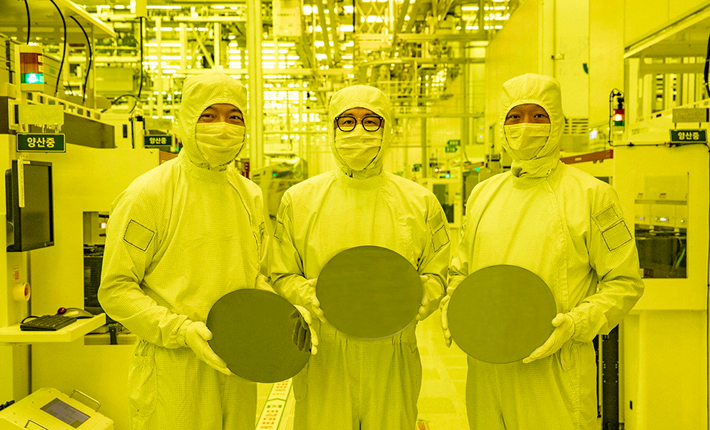Asian stocks rallied on Thursday as investors took a breather after some calm returned to the markets amid worries over US interest rates and tensions in the Middle East.
Shares saw their biggest gains in a month in early trading, while the dollar was becalmed and bond markets steadied as traders assessed the rate outlook.
Japan’s Nikkei share average rose for the first time in four sessions, as chip-sector shares reversed early declines and bank shares rallied.
Also on AF: US Set to Restore China Solar Tech Tariffs After Korea Firm Plea
The Nikkei ended the day up 0.31% at 38,079.70, bouncing back from a drop of as much as 0.83% early in the session to recover the psychological 38,000 mark.
For the week though, the index remains 3.65% lower, on track for the biggest weekly decline since December 2022. The broader Topix reversed small early losses to finish with a 0.54% gain.
For the year, the Nikkei remains up 13.79%. It rose to a record 41,087.75 on March 22, and had declined 7.61% from that point as of Wednesday’s close.
The earnings season began earlier this month with retailers headlining early reports. Tech names are due from next week, although the bulk of company announcements come in mid-May.
China stocks tracked other Asian markets higher, with banking shares leading the gains.
However, investors are still wary about geopolitical tensions, as President Joe Biden on Wednesday called for sharply higher US tariffs on Chinese metal products as part of a package of policies aimed at pleasing steelworkers in the swing state of Pennsylvania, at the risk of angering Beijing.
China’s blue-chip CSI300 index was up 0.12% with, in earlier trade, its financial sector sub-index rising 1.48%, the consumer staples sector up 1%, the real estate index down 0.05% and the healthcare sub-index up 0.2%.
The Shanghai Composite Index rose 0.09%, or 2.84 points, to 3,074.22, while the Shenzhen Composite Index on China’s second exchange edged down 0.11%, or 1.83 points, to 1,698.92.Chinese H-shares listed in Hong Kong rose 1.45% to 5,833.02 and the benchmark Hang Seng Index was up 0.82%, or 134.03 points, to 16,385.87.
Elsewhere across the region, Indian stocks fell with Mumbai’s signature Nifty 50 index down 0.69%, or 152.05 points, at 21,995.85. MSCI’s broadest index of Asia-Pacific shares outside Japan rose 1% led by a nearly 2% gain in South Korea’s Kospi.
US, Korea, Japan Forex Cooperation
S&P 500 futures bounced 0.4%, Nasdaq 100 futures rose 0.5%, FTSE futures rose 0.3% while European futures were flat.
The dollar has eased from recent highs and news of an unusual trilateral agreement between the US, Japan and Korea to consult closely on foreign exchange left the door open to intervention to slow any further dollar gains in Asia.
US short-term interest rate expectations were little changed but selling of longer-dated bonds abated, and Asia’s bond markets rallied on Thursday. Ten-year Japanese government bond yields fell 2 basis points to 0.86%.
Ten-year Treasury yields fell 1.6 bps to 4.569% and two-year Treasury yields, which touched 5% on Thursday, were last at 4.92%.
The euro is under pressure as European policymakers are readying to cut rates in two months time, though at $1.0680 it is off this week’s five-month lows.
The Australian dollar took a slight knock from data showing an unexpected fall in Australian employment in March before steadying around $0.6446.
The yen traded at 154.32 per dollar, close to a three-decade low, and traders are eyeing a breach of 155 as a possible trigger for intervention.
China’s yuan hovered at 7.2357 per dollar. It is down 1.8% against the dollar this year and the weakening of its trading band this week has been taken as a signal that Chinese authorities will tolerate further softness.
In other commodity markets, European gas prices have retreated from three-month highs and sharp rallies in metal prices have paused, though not reversed.
Key figures
Tokyo – Nikkei 225 > UP 0.31% at 38,079.70 (close)
Hong Kong – Hang Seng Index > UP 0.82% at 16,385.87 (close)
Shanghai – Composite > UP 0.09% at 3,074.22 (close)
London – FTSE 100 > UP 0.52% at 7,888.75 (0836 BST)
New York – Dow < DOWN 0.12% at 37,753.31 (Wednesday close)
- Reuters with additional editing by Sean O’Meara
Read more:
Japan, Korea, US Agree Forex Cooperation As Yen, Won Dive
IMF Tips 3.2% Global Growth, Warns China on Property Crisis
Biden to Propose Tripling Tariffs on Metal Products From China
Nikkei Dips on Profit Taking, Hang Seng Flat Despite Rules Boost




